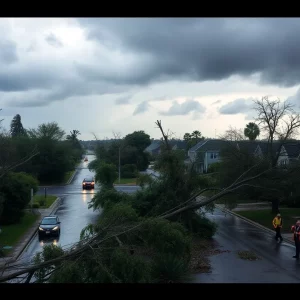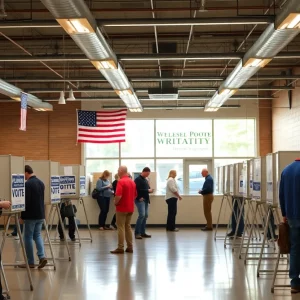COLUMBIA, SC: A Neighborhood Sets the Record Straight on Housing!
It was a chilly December morning in Columbia, South Carolina, when the news broke about a dramatic demolition that had neighborhood residents buzzing. On November 30th, two mobile homes, which many in the Booker Washington Heights neighborhood had decried as an unsightly blight, were razed to the ground. Residents voiced strong complaints about these units, calling them an eyesore that simply didn’t belong in their community.
What Happened?
The saga began in mid-November when residents noticed a couple of portable “shanty homes” plopped down on wood pallets in an empty lot on Beaumont Avenue. The developer had reportedly planned to refurbish these homes into something more livable, but it seems that the initial impression left a lot to be desired. City officials listened to the frustrations of the locals and swiftly reached an agreement with the developer to have the structures removed.
Community Reaction
The neighborhood, which holds a rich history and is primarily made up of Black residents, felt that these structures were not only unattractive but also out of touch with the vision they had for the area. Neighborhood President Regina Williams was clear: this was not the type of development they were looking for. Residents expressed a strong desire for housing that uplifts and beautifies the neighborhood.
A Step Toward Better Solutions
City Councilman Tyler Bailey echoed these sentiments during the City Council meeting. “We need more attainable housing,” he stated, “That doesn’t mean shanty homes being dropped off in areas that can’t afford to have the blight.” His statement rang true, reflecting the community’s desire for a thoughtful approach to housing that preserves the aesthetic integrity of Booker Washington Heights.
Building on these complaints, the council took action and passed the first reading of a new ordinance. This ordinance is a big deal because it simply states that if developers are given the green light for modular homes, they must be placed on site as such—with proper foundations in place. They shouldn’t be left on pallets waiting for refurbishment, as this only leads to more issues and discontent among the residents.
The Bigger Picture
The issue at hand goes beyond just two mobile homes—this is part of a broader dialogue about housing in Columbia. City officials estimate that there are over 2,000 empty lots across the city that need building, and Bailey believes this highlights the need to take a closer look at zoning ordinances. He’s concerned about how they may be contributing to gentrification and investor ownership that doesn’t benefit the existing community.
Looking Forward
As residents look to the future, there’s hope for revitalization in the Booker Washington Heights neighborhood. City leaders have a vision to not only fill these empty lots with new homes but to do so in a way that respects the history and character of the community. “We want to bring density back to these areas,” Bailey asserted. There’s a sense of urgency in filling these lots with homes that are not only structurally sound but also visually appealing.
With a clear direction from the city and the unity of community stakeholders, Columbia may soon witness a shift that aligns with the residents’ dreams for a vibrant, beautiful neighborhood. The demolition serves as a poignant reminder that together, communities can uphold standards that reflect their values and aspirations.
Conclusion
The winds blowing from the north may be cold today, but the warmth of community spirit and engagement shines brightly in Columbia. The actions taken by city officials and residents alike demonstrate a commitment to crafting a better future—one that comes with clean, safe, and attractive living spaces for all.








